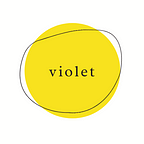Translation of a Sivaramani poem and some thoughts on it
I would not be the first person to think about how an artist’s acts affect our perception of their art, especially when it is something like suicide. From glorifications, wrapping the art in an aura of mystery, dismissals, finding clues in innocent words, it can lead to a myriad of things. Sivaramani and Aathmaanaam were introduced to me when I started reading Tamil poetry as the essential ‘suicide’ poets, much like Sylvia Plath. We had all combed through their words finding clues, making clues, and it is bad reading and even tiring. For they were brilliant poets! Which again brings us back to the same dilemma of why, shouldn’t a poet know something more? I don’t think poets know any better. I still cannot declare poetry is not powerful. But I detest the power of poetry, like I detest anything that seeks power over others. Though, I cannot deny the power it holds over me.
I have read and known Sivaramani’s poems as having the intensity of a revolutionary, a feminist, who wrote with a rhythm that burned faster. The shadow of war unavoidably looms large over her poems. Most poems do talk of it directly. Notes from a genocidal war will echo across many points of history and present. Because that is the world we have built for ourselves and continue building.
But when I read this poem, its beauty, much alike the soft evening light it speaks of, struck me speechless.
Place: Jaffna University canteen
Time: 04.30 PM
Alone
Like a little railway station
Forgotten by its passengers,
Between the walls
That rise among us
Along with the laughter
An evening…I am chatting with my friends.
The time when
We want to be happy
Amidst many injuries
Without any special occasion.
Without words to speak
The friend who tapped his fingers
To the rhythm of a forgotten song
The drops of tea splattered
In the middle of the table…
The flies that drank the tea
And got caught in the spider webs above us…
My friend laughed till her
Shoulders hurt.
Who said something funny?
I do not knowThe clouds that passed above
glass roof tiles —
The time that passed, minutes,
The tables and chairs
left with no mark,
Not even a smell to remember -
The empty cups, leaving them all…Chased away by
The rays of evening light
Coming through the door,
We left—
Not to change the world,
To another night.1989
We are living in times when for many or some (I do not really know) of us chattering away an evening with friends feels like a distant memory. The poem starts with stating a specific time and place. As it goes on, the special-ness of the day is denied. It becomes ordinary and by the ending we know it is special. It is a memory that the poet cherishes. But we do not know if it is merely a day representing many or a more remarkable one. Here I saw two options, one is to see it with the knowledge we have, of war, of harm, and reconstruct the special-ness of the day with what did not happen. Or, we can find extra in the ordinary, see the joy weaved through the lines as time passes slowly. Maybe even ask questions like, can we ever not change the world?
Then, is it a note of bitterness that we see in the end about not changing the world, or carelessness, or a burden of memory from what came later? Many seem to see it as bitterness. It is not a bad reading considering other poems by Sivaramani. Poems where she said she does not have hopeful words like a pamphlet, and where she complained of getting defeated along with her beliefs, do point us in that direction. We can even think whether we did miss a metaphor in the flies? I still cannot help but say, the poem is more than the bitterness. So what else? Is there joy in dying, not in the suicidal-burning death, but the slow death of clocks ticking everyday? The clocks nowadays don’t even tick loudly!
I don’t have answers. If I had, maybe I would not have been enchanted by this poem. But maybe we can find something here, together.
